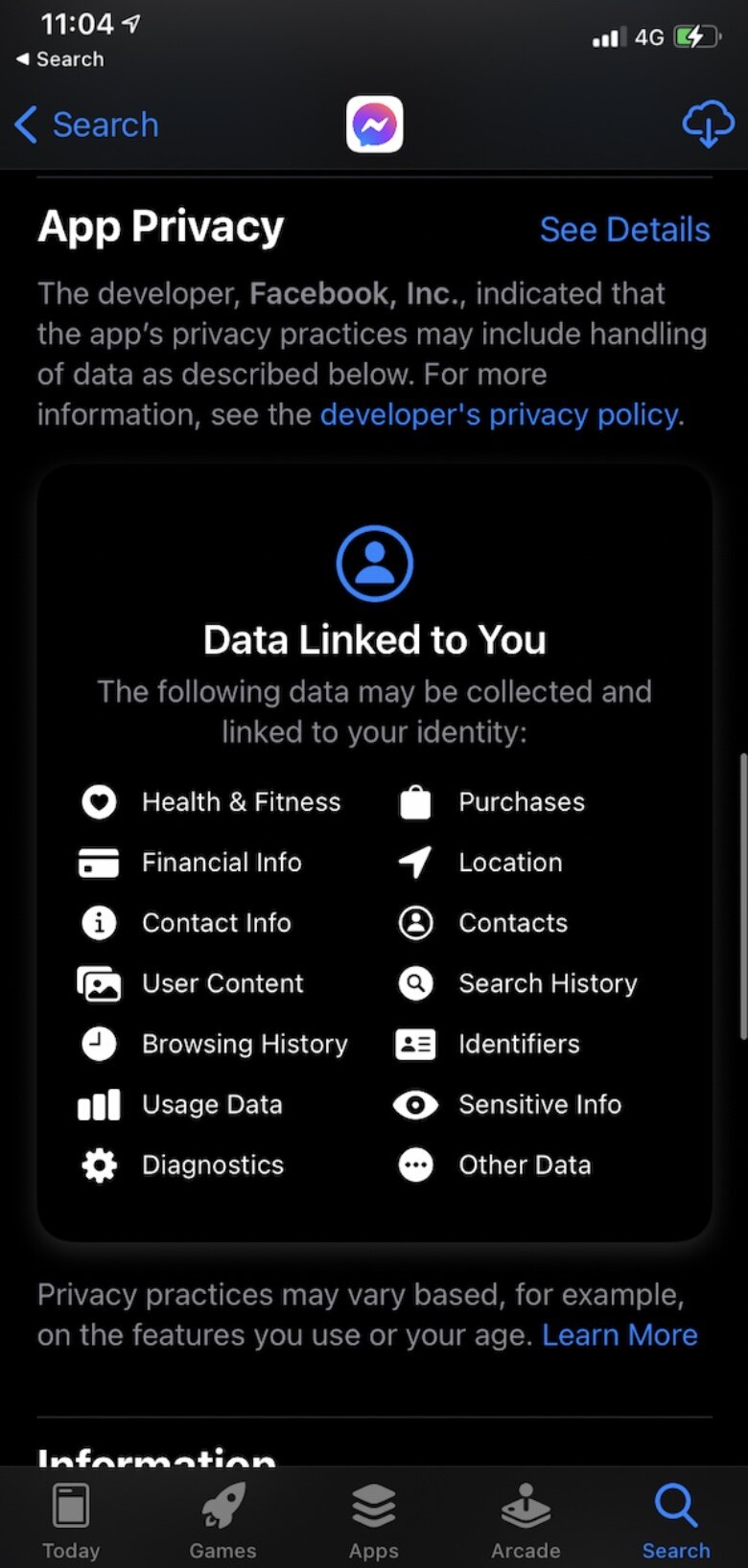How does the Facebook / Apple Privacy Disagreement Impact Your Company?
Before we can dive into the heart of the disagreement between Facebook and Apple, we first must understand the term 'Remarketing/Retargeting', as that's the most direct impact for businesses leveraging Facebook's tracking abilities. The best definition I've found is the following:
"Remarketing (also known as retargeting) is the tactic of serving targeted ads to people who have already visited or taken action on your website. In terms of technical execution, remarketing is the process of using a javascript tag (known as a pixel) to place a cookie in the user’s browser. The cookie then informs a remarketing platform to serve specific display ads through an ad exchange, based on the pages or products the user has engaged with or searched for on your website or app."
What does this look like in practice? Here's a logical remarketing sequence:
You browse for a product on a website
You add it to your cart
You decide not to purchase it at that moment
Next time you're scrolling through your Facebook feed, you 'happen' to see an ad for the product in your cart
You jump back over to the site and complete your purchase
The marketing team gives each other 'high fives' for a job well-done
Facebook uses something they label a 'Pixel Tracker', which businesses can place on their sites (or link on their Amazon FBA account). That's how this 'tracking magic' takes place. And it's not just limited to this one very specific example, there are a multitude of remarketing sequences accomplished using a sophisticated set of tracking and delivery protocols.
So what does this have to do with Facebook vs Apple (and your company)? Well, quite simply, we all have known for quite some time that Facebook 'collects a bunch of data on you and uses it for stuff' (stuff, like that sequence outlined above). Apple is taking a hard-line, 'opt-in' stance on all-things privacy-related, and that includes developers of apps for its various platforms. To be fair, Apple enforces these policies on themselves when they ask users things like 'do you want to opt-into Siri recordings being shared with quality control?' and 'do you want _____ app to have access to your camera and microphone?' (they do this with their own apps as well). Apple has enforced opt-in policies with many, many components of their platform: except app-based cross-tracking.
Why wasn't this a problem until now? Well, it's always been an open-secret that Facebook collects data and tracks you. They can do that on the web (meaning desktop computer), but the mobile ecosystem is significantly more controlled by Apple as Apps must go through Apple's development review process. Apple has, until this point, not aired Facebook's (or any other developer's) dirty laundry regarding privacy and given the users the ability to decide if they give away their tracking data. We can all speculate as to why that might be, but all that really matters is that it effectively mean war between these two behemoths, and Apple probably didn't want to go down this path until it had the moral and strategic higher-ground. Facebook is publicly furious and has launched a campaign attacking Apple, while most anyone with an inquisitive mind has pointed out the logical fallacy of Facebook's argument. Let's face it: Facebook amasses its profits through data and running an ad network - Apple's change puts their entire method for monetization at-risk. So back to the original question at hand...what does it mean for your company?
It means the following:
Remarketing/retargeting efforts are going to become less effective
If users read the pop-up notification and say 'no thanks, you can't have my data', that leg of Facebook's strategy becomes less and less effective over time
If your business is leaning on remarketing, then you are going to have to adapt
Let's say you sell products, and have a sophisticated approach to remarketing and you can track back 25% of your sales to those efforts
Well, buckle-up because you're likely going to have to adapt
Your audience will have fewer reminders of what they thought they wanted, so that first impression is going to matter that much more. Thus...Content.
That first impression where your audience consumes your business' content matters more than ever, because you might not get a chance to remind them that you exist
Make that strong first impression through useful creative content, don't rely on reminder-tactics




